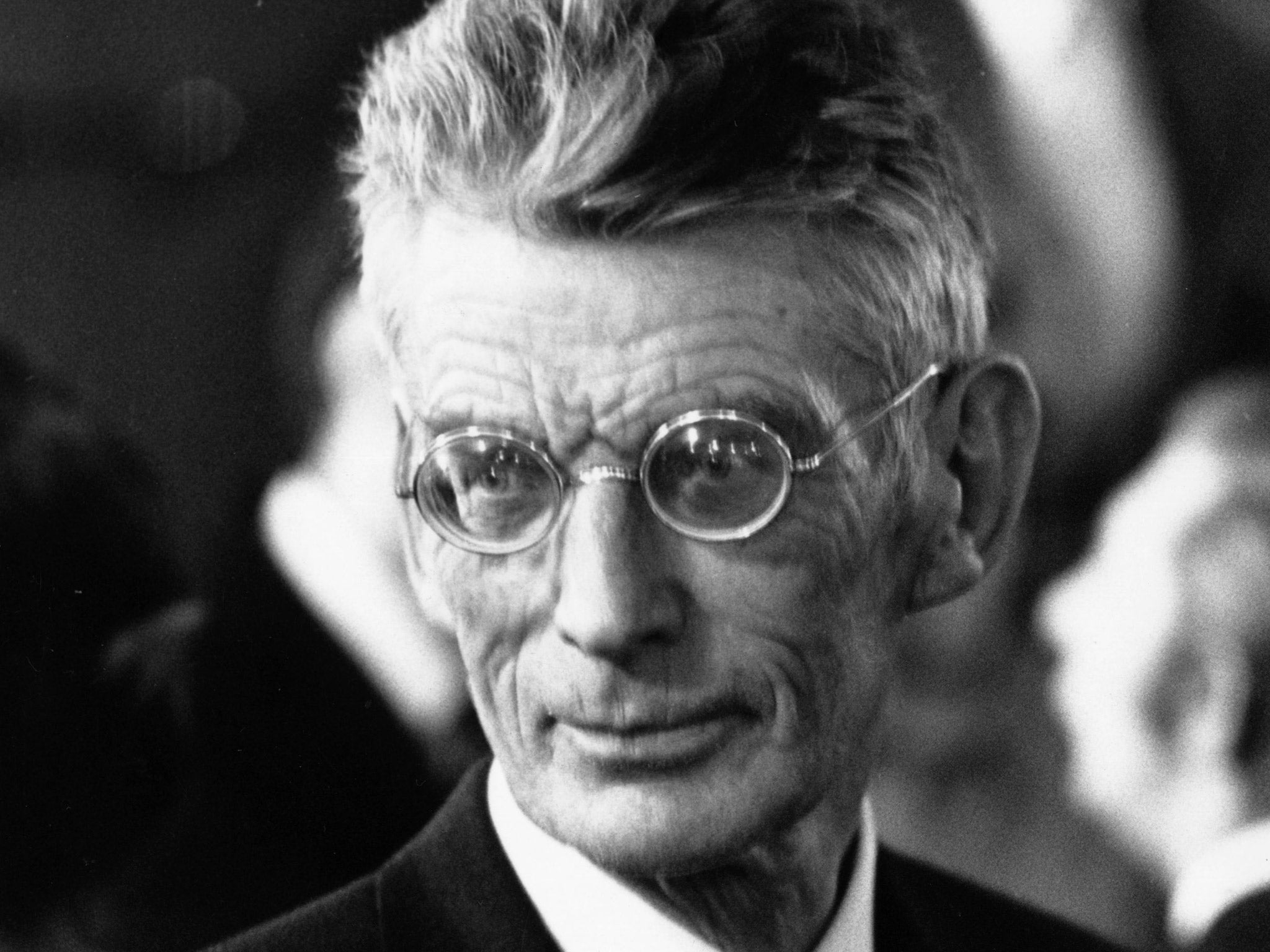Samuel Beckett's story teaches young writers to go their own way! Week in Books by Arifa Akbar

Your support helps us to tell the story
From reproductive rights to climate change to Big Tech, The Independent is on the ground when the story is developing. Whether it's investigating the financials of Elon Musk's pro-Trump PAC or producing our latest documentary, 'The A Word', which shines a light on the American women fighting for reproductive rights, we know how important it is to parse out the facts from the messaging.
At such a critical moment in US history, we need reporters on the ground. Your donation allows us to keep sending journalists to speak to both sides of the story.
The Independent is trusted by Americans across the entire political spectrum. And unlike many other quality news outlets, we choose not to lock Americans out of our reporting and analysis with paywalls. We believe quality journalism should be available to everyone, paid for by those who can afford it.
Your support makes all the difference.So Samuel Beckett’s unpublished short story will finally see the light of day, 80 years after Charles Prentice, his editor at Chatto & Windus, asked him to write “Echo’s Bones”, in order to bulk out his 1934 debut collection. Prentice also asked Beckett to change the title from Draff to More Pricks Than Kicks in a bid to make it more appealing to readers. Then he rejected “Echo’s Bones” as a “nightmare” that would turn readers off and “depress the sales”.
As it happened, the book didn’t sell like hot-cakes – did Prentice seriously think it would? – even with the exclusion of Beckett’s “nightmare” story. Unsold copies had to be pulped in batches in 1938 and ’39. Chatto lost around a third of their outlay and Beckett’s royalties never totalled more than half of his £25 advance. Years later, even Beckett dismissed the collection as juvenilia and resisted re-issue for years but then again, Beckett was said to be have been hard on much of the work he produced before the 1950s.
Prentice stands out as a defining figure in all of this, at least to my mind. Quite the plain-speaker, he also seems to be playing to the market, and grooming the 27-year-old Beckett to do the same. Beckett obliges on both counts – he changes the title; he leaves out the last story. He even brings his protagonist, Belacqua Shuah, back from the dead, after “Yellow” has him dying after an operation, and “Draff” has him buried by his widow.
It’s a grand effort from Beckett, to have re-imagined Belacqua in an elaborate, mock-heroic fantasy that combined existentialism with elements of Dante’s Divine Comedy. All the same, he certainly had to jump through marketing hoops to see his work in print. We know Beckett was desperate to be published. He had become frustrated as a lecturer at Trinity College Dublin, and run away to Paris to write his first novel, which was rejected.
Reading “Echo’s Bones”, in which Beckett’s ambition and experimentalism is clear, I can see why Prentice thought it incomprehensible. It is easy to think this if read too fast and carelessly. It is not a mature work, nor is it anywhere near perfect, crammed with literary allusions, puns, intertextual references, absurdist humour. Then again, it is a story written on demand for a debut fiction collection. What did Prentice expect?
“I came, I sat down, I went away…”, says Belacqua, foreshadowing the existentialism, or nihilism – whatever you want to call it – that we find in Waiting for Godot. The dialogue is both tripping and tricksy, and there is loads of it: characters don’t seem to hear each other but there is fast, furious word-play and bathetic or bawdy one-liners. The blurb on the back of More Pricks Than Kicks when it was first published, cited its “rare humour, the last weapon against despair”. This story offers a fine example of that.
It is by no means my favourite in the collection. That would be “The Smeraldina’s Billet Doux”, a love letter written by a woman to her beloved (which Beckett based heavily on a letter he received from Peggy Sinclair, a cousin who later died, and with whom he had a romance) which has a heart-stopping lyricism despite its apparent simplicity and misspellings. But it is “Echo’s Bones” that shows us the things that Beckett would do so well in later decades. Could its exclusion serve as a lesson to young writers not to submit to the (often market-led) dictates of their publishers? Beckett fans might want to read it themselves to prove Prentice wrong.
The novelist with the ill-fated title makes a comeback
Some time ago, I wrote about book titles, good, bad and misleading, by which we sometimes judge what lies inside. Back then, I didn’t know of the ill-fated timing of Susan Barker’s debut novel, set in a Japanese hostess bar, and originally called Tsunami Bar. Due to be published early 2005, all copies were ready to go until Boxing Day 2004, when the Tsunami caused such devastation. The novel was swiftly renamed Sayonara Bar and every last remaining copy of Tsunami Bar had to be pulped – by the same Doubleday editors who, by the way, had changed the name of Monica Ali’s debut, Seven Seas and Thirteen Rivers to the much edgier Brick Lane. Barker is back in July with her third novel, The Incarnations (originally named Beijing Taxi Driver and perhaps changed for its associations with Scorsese’s vigilante violence?). It is about a taxi driver who lives reincarnated lives through 500 years of Chinese history.
Join our commenting forum
Join thought-provoking conversations, follow other Independent readers and see their replies
Comments